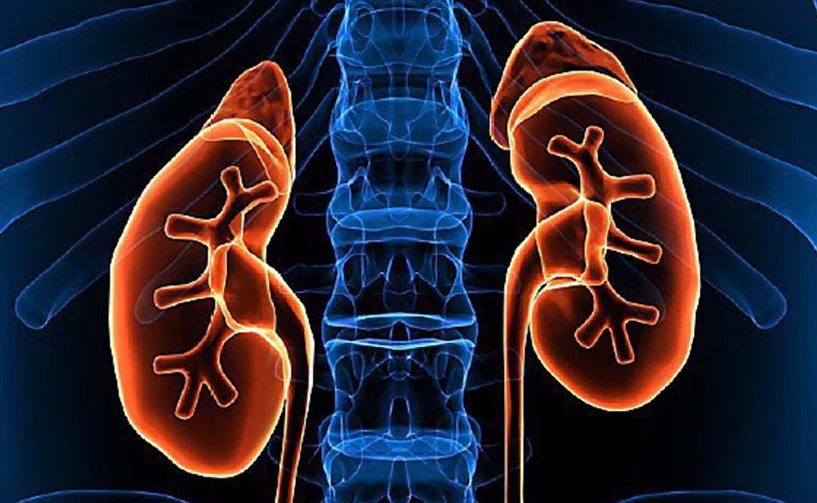Nephrotic Syndrome

- 26 Apr 2024
Why is it in the News?
On the heels of recent news reports on how keratin-based hair-straightening products containing glycolic acid derivatives led to severe kidney injury in women, researchers from Kerala have reported a series of cases wherein, the use of fairness creams has been linked to nephrotic syndrome.
What is Nephrotic Syndrome?
- Nephrotic syndrome causes scarring or damage to the filtering part of the kidneys (glomeruli).
- This causes too much protein to be lost from the blood into the urine.
People with nephrotic syndrome often have:
-
- Low levels of protein in the blood (hypoalbuminemia)
- Very high levels of protein in the urine (proteinuria)
- Swelling (edema), especially around the eyes, feet, and hands
- High cholesterol
What causes nephrotic syndrome?
- Nephrotic syndrome results from damage to the kidneys' glomeruli.
- These are the tiny blood vessels that filter waste and excess water from the blood and send them to the bladder as urine.
- The glomeruli keep protein in the body. When they are damaged, protein leaks into the urine.
- Healthy kidneys allow less than 1 gram of protein to spill into the urine in a day.
- In nephrotic syndrome, the glomeruli let 3 grams or more of protein leak into the urine during 24 hours.
- Nephrotic syndrome may happen with other health problems, such as kidney disease caused by diabetes and immune disorders.
- It can also develop after damage from viral infections.
- The cause of nephrotic syndrome is not always known.
What are the symptoms of nephrotic syndrome?
- The symptoms of nephrotic syndrome include:
- Swelling or edema, typically in the ankles, feet, or legs
- Fatigue
- Loss of appetite
- Weight gain
- Foamy urine
Treatment:
- The treatment of nephrotic syndrome varies depending on its cause.
- However, it typically includes medications to treat the underlying cause, as well as changes in diet.
- Dietary changes that might help in treating nephrotic syndrome include Source:
- limiting sodium
- eating less protein
- reducing the intake of saturated fat and cholesterol
Complications of nephrotic syndrome:
- Serious complications of nephrotic syndrome include kidney failure or end-stage renal disease (ESRD).
- Dialysis may be needed if kidney failure develops which can happen in extreme cases.
